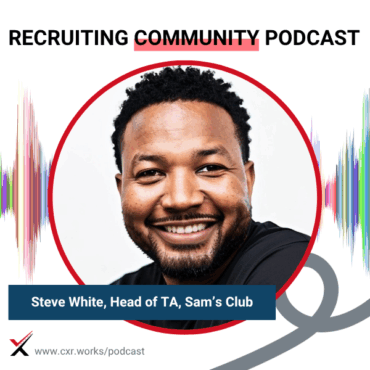
TA as a Business Partner with Steve White
What happens when a TA leader steps into a Fortune 1 enterprise? Steve White shares how he’s aligning talent strategy with business goals at Sam’s Club.
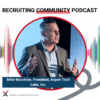 play_arrow
play_arrow
Real-Time Jobs Data and the TA Advantage Cami Grace
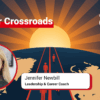 play_arrow
play_arrow
20+ Years at Dell and Beyond: Jennifer Newbill’s Career Crossroads Cami Grace
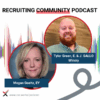 play_arrow
play_arrow
AI Interview Research Cami Grace
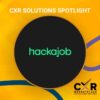 play_arrow
play_arrow
Solutions Spotlight on Hackajob Cami Grace
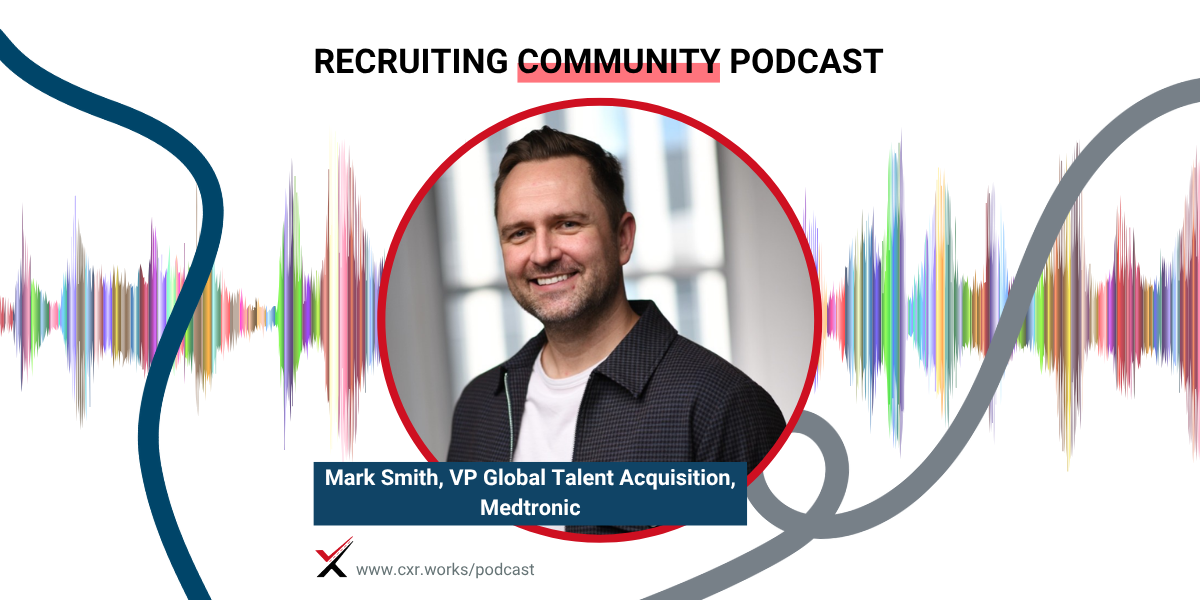
Host: Chris Hoyt, President of CareerXroads
Guest: Mark Smith, VP of Talent Acquisition, Medtronic
🎙️ CXR Podcast: Leadership, Focus & Falling Forward with Mark Smith of Medtronic
In this episode, we sit down with Mark Smith, VP of Talent Acquisition at Medtronic, for an insightful conversation on leadership, resilience, and the surprising power of slowing down.
Mark shares his path across industries – from staffing and manufacturing to CPG and healthcare – and how a life-changing accident forced him to completely rethink how he works, leads, and lives.
We dive into how that experience sharpened his focus, improved his productivity, and deepened his leadership philosophy. Mark also weighs in on navigating AI hype, staying grounded in mission-driven work, and why stepping outside your industry is the key to innovation.
⏱ Episode Highlights
[5:22] – The accident that changed everything: Falling 15 feet and learning to slow down
[11:40] – Returning to work with new limits, new boundaries, and a new mindset
[16:10] – What books like Free to Focus and Atomic Habits taught him about presence and productivity
[25:45] – Using constraint as a leadership superpower
[30:50] – The truth about AI in talent acquisition: What’s real, what’s hype, and what matters
[36:00] – The philosophy that drives Mark’s leadership today: Be present, be focused, work hard
🔗 Links & Resources
Learn more about Medtronic: medtronic.com
Explore books mentioned in this episode:
Discover CXR’s recruiting community and resources: cxr.works
⭐ Enjoyed the Episode?
If Mark’s story resonated with you, we’d love for you to follow, rate, and review the show. Share this episode with a colleague or friend who could use a reminder to pause, reset, and refocus.
Title:
Leadership Approaches with Medtronic’s Talent Acquisition Leader, Mark Smith
Featured Guests:
Mark Smith, Executive Director of Talent Acquisition, Medtronic
Hosts:
Chris Hoyt, President, CareerXroads
Episode Overview:
In this episode, Mark Smith reflects on his career journey across multiple industries—including roles at Caterpillar, Amazon, SC Johnson, Kraft Heinz, and now Medtronic. He shares how diverse leadership experiences fuel innovation, especially when applied across sectors. Smith also opens up about a serious accident that reshaped his work habits, leadership style, and approach to personal effectiveness. The conversation includes thoughts on AI, professional growth, and the importance of doing the work without distractions.
Key Topics:
Cross-industry leadership lessons from Caterpillar, Amazon, SC Johnson, and more
Medtronic’s mission-driven focus and low brand recognition despite lifesaving innovations
Adapting leadership and productivity after a life-altering accident
Using tools like Free to Focus and Atomic Habits during recovery
Rethinking multitasking and work-life balance in demanding roles
Embracing directness, intention, and prioritization in team leadership
The value of exploring non-HR events for AI and innovation insights
Notable Quotes:
“I might bring in a leadership principle from SC Johnson that we can apply at Medtronic, or something from Caterpillar. It’s like a leadership pick and mix.” — Mark Smith
“When people have a health condition, it’s often private and personal… even though we have patients as consumers, the brand recognition isn’t always strong.” — Mark Smith
“My tree-cutting days are officially over.” — Mark Smith
“I had to completely change how I work.” — Mark Smith
“Honestly? It might be Work F**ing Hard. There’s a lot of fluff and pontification out there.” — Mark Smith
Takeaways:
Mark Smith highlights how a multifaceted career and a personal health crisis led to a more focused, disciplined leadership approach. By drawing on experience across sectors and reshaping his work habits post-injury, Smith has become more effective and intentional in both life and work. His journey emphasizes the power of resilience and the value of showing up and doing the work.
Want more conversations like this?
Subscribe to the CXR podcast and explore how top talent leaders are shaping the future of recruiting. Learn more about the CareerXroads community at cxr.works.
Chris Hoyt: We’re actually hearing from some leaders who are opting for events that are not TA or HR focused for innovation. They’re going completely outside the industry to see what others are using AI for—to learn how. It’s really the way to do it. I like that we’re sort of breaking—
Mark Smith: —out of that.
Yeah. I’ve been blessed in my career. I’ve had the opportunity to support Caterpillar both as a vendor and then as a client. Then I moved to Amazon, which touches just about everything, and then into CPG with SC Johnson, Kraft Heinz, and now into healthcare technology. It’s been quite a journey. Some days, I might bring in a leadership principle from SC Johnson that we can apply at Medtronic, or something from Caterpillar. It’s like a leadership pick and mix. I love having that repertoire of knowledge—it fuels more innovation when you get out of your sector.
Announcer: Welcome to the Recruiting Community Podcast, the go-to channel for talent acquisition leaders and practitioners. This show is brought to you by CXR, a trusted community of thousands connecting the best minds in the industry to explore topics like attracting, engaging, and retaining top talent. Hosted by Chris Hoyt and Gerry Crispin. We are thrilled to have you join the conversation.
Chris Hoyt: Welcome back, everybody, to the Recruiting Community Podcast. We do weekly insights in a format that we hope feels like a pleasant conversation—connecting with leaders to talk about what’s top of mind for them and the work they’re doing.
If you’re not on a treadmill and you’re actually watching us, you’ll notice we’re not in the studio. We’re at the Unleash event here in Las Vegas, and our friends at Shaker have sponsored this space so we can chat with leaders as they pass by.
One of our favorite leaders is with us today. You’ve had some really interesting things happening in your life recently—some posts you’ve made are getting attention, and rightfully so. So, if you want to catch up on past and future episodes, go to cxr.works/podcast. But let’s just jump right in.
So, Mark, give us your elevator pitch. Who is Mark Smith? Why should we be listening to you? Maybe tell us a bit about where you work, because I don’t think a lot of people really understand the lifesaving work that goes on in your organization. They may know the outcomes, but not the name Medtronic.
Mark Smith: Thanks, Chris. And thanks to Shaker for the decor—this is a pretty great setup.
So, I’m Mark Smith. I’ve been in TA for 23 years. I feel like I’ve earned some wisdom along the way. I’ve led internationally—originally from England, now living in the States. I’ve worked on both sides of the fence, starting with Randstad and Adecco. Those early years taught me to be client-focused.
Eventually, I went in-house, starting with Caterpillar as Head of UK TA and then Head of EMEA TA. From there, I joined Amazon—not the location, the company—and spent about 18 months there. That’s like five years in Amazon time. That’s also when the gray hairs started. After Amazon, I reconnected with a former Caterpillar colleague and joined SC Johnson as Senior Director of Global TA. That was my move into CPG, working on well-known brands like Ziploc and Windex.
Then I moved to Kraft Heinz as Executive Director of TA. But after a couple of years, my wife and I realized Chicago wasn’t quite the place for us. That led to Minnesota and Medtronic.
Medtronic has around 100,000 employees and just celebrated our 75th anniversary. We’re known for the first ever pacemaker, but we do much more—diabetes solutions, med-surgical products, deep brain stimulation for Parkinson’s patients, and so on.
When people have a health condition, it’s often private and personal. They’re focused on healing, not on which company made the device. So even though we have patients as consumers, the brand recognition isn’t always strong. In fact, our corporate comms team says brand awareness is only 3-4% in the general public.
But we aren’t a company that’s going to sponsor the Super Bowl. We’d rather invest those dollars into research—both into talent and technology that can save lives.
Chris Hoyt: It’s really impressive. The scale of what Medtronic does is phenomenal.
Mark Smith: Yeah. I’ve worked with great brands like Caterpillar, Amazon, and SC Johnson—brands people recognize. With Medtronic, I got lucky. The work is meaningful, and even though brand recognition is low, what we do truly matters.
Chris Hoyt: You’ve had a recent life event, and I’d love to talk about that—however you’re comfortable—because it seemed to have inspired a LinkedIn post that got a lot of traction.
Mark Smith: Yeah. My tree-cutting days are officially over. Last August, I was helping my wife in the yard. Classic case of complacency in the final five minutes. I decided to go for one last branch and extended the ladder fully. My foot was at the 9-foot mark, I’m 6 feet tall, so my head was 15 feet up.
The ladder slipped. I tried to catch the tree, bear-hug it, something—but I spun around and fell onto a rock. Tore my ACL, broke my arm, lost some teeth, got a nasty gash on my head, and blacked out. I was unconscious for a bit. When I came to, I was stumbling like a boxer who had taken a hard hit.
The worst part? I hit the back of my head—right on the occipital lobe, which affects vision. I couldn’t watch TV. Reading was better, thankfully. I couldn’t multitask. Zoom calls made me dizzy and nauseous. I had to completely change how I work.
That’s where books like Free to Focus by Michael Hyatt and Atomic Habits by James Clear helped. Both those authors also had brain injuries early in life. I found a lot of empathy and guidance from their experiences.
Chris Hoyt: I imagine that kind of recovery affects every part of your life.
Mark Smith: Totally. I used to do 12–14 meetings a day. Multitasking, texting, pinging on Teams—all while in meetings. Post-injury, I had to cut back. My boss, Matt Walter, and others were incredibly supportive. I took six to eight weeks off. Now, I set hard limits on my schedule.
With the help of my assistant, Christie Hendrickson—another shoutout—we prioritize ruthlessly. I’m more focused, more intentional, and less spread thin. It’s forced me to be more effective, more direct, and a better leader overall.
Chris Hoyt: That’s got to change your relationships with your team, right?
Mark Smith: It does. I’m much more diligent now. I keep strong to-do lists. I stay ahead of my work. I still like to talk—clearly—but I cut the fluff in business settings. I get to the point. What’s the goal? How do we move the needle?
Chris Hoyt: You’ve turned a life-altering event into a personal and professional growth path. That’s powerful. I know it might feel like you didn’t have a choice, but you absolutely did—and you chose to evolve. That’s admirable.
Mark Smith: Thank you, Chris. I appreciate that.
Chris Hoyt: Okay, quick one: If you were to write a book about the state of the TA space today, what would the title be?
Mark Smith: Honestly? It might be Work F**ing Hard*. There’s a lot of fluff and pontification out there. AI is important. RTO is a hot topic. But none of that matters if you don’t actually do the work. I’ve seen great talent succeed because they just get things done—without excuses.
Chris Hoyt: I love that. As I get older, I appreciate people who master their craft. Not influencers, not noise—just people who love the work.
Final spin question: Who gets the first signed copy of your book?
Mark Smith: My parents. They were my first teachers, my first managers. Everything started with them.
Chris Hoyt: That’s perfect. Thank you, Mark, for your time, your insight, and your authenticity. And thanks again to Shaker for giving us the space to chat. For more episodes, check out cxr.works/podcast.
Announcer: Thanks for listening to the Recruiting Community Podcast—where talent acquisition leaders connect, learn, and grow together. Visit cxr.works/podcast to explore past episodes, see what’s coming up, and find out how to join the conversation. If you’re interested in becoming a member of the CXR community, visit us at www.cxr.works. We’ll catch you in the next episode.
Tagged as: Organizational Culture, Leadership.
Chris Hoyt is the President of CareerXroads, a global peer community for talent acquisition leaders driving strategic change. With decades of experience leading recruiting innovation at Fortune 500 companies, Chris now advises enterprise TA teams on tech, process, and leadership. He’s a frequent speaker at conferences like SHRM, HR Tech, LinkedIn, and UNLEASH, and he’s known for pushing conversations beyond buzzwords to get to what really works in hiring. Through CXR, he connects top TA professionals to solve real problems, challenge norms, and shape the future of recruiting.

What happens when a TA leader steps into a Fortune 1 enterprise? Steve White shares how he’s aligning talent strategy with business goals at Sam’s Club.